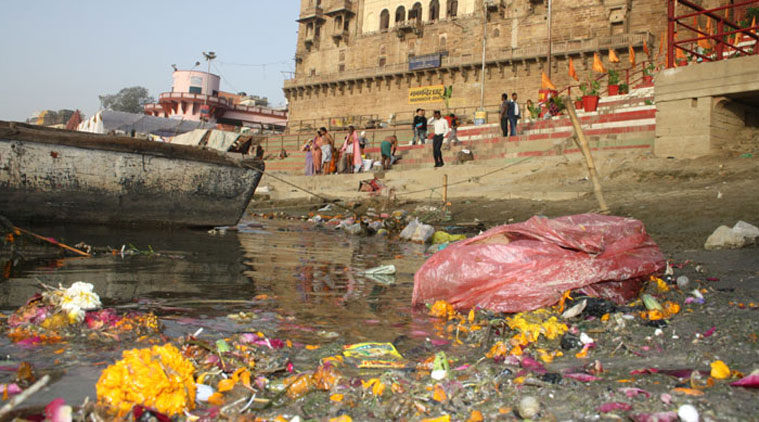Lucknow, July 7: The minister in charge of rejuvenating the Ganga today warned industrialists they could soon face jail terms under proposed laws if the factories they owned were found releasing untreated water into the holy river.
“Some people have been spreading a rumour that items offered to the Ganga during prayers are polluting the river. Actually, it is the industries and sewage water which are harming it,” Uma Bharti said in Haridwar.
“We are in the process of making an act to arrest industrialists behind the Ganga’s pollution,” the minister for water resources, river development and Ganga rejuvenation added.
Over 400 tannery owners in Kanpur, a major manufacturing centre for leather products, had turned down the Centre’s offer last year to shift their units along the river to other places. Other industrial units had also opposed the plan.
Bharti’s warning came on a day the Centre launched 231 projects under the Namami Ganga programme the Narendra Modi government had announced in 2014.
The projects – that would cover Uttarakhand, Uttar Pradesh, Bihar, Jharkhand, Bengal, Delhi and Haryana – include drainage schemes and development or refurbishment of sewage treatment plants.
“We have already convinced the state governments on the (proposed) act. We will show them the final draft before taking it forward,” Bharti said.
The minister said the Ganga Action Plan had been launched in 1985 and Rs 4,000 crore spent on trying to clean the river but the efforts had not yielded results because of a lack of coordination between the Centre and state governments.
“It is not that the Centre is obliging the Ganga by spending so much to make it pollution-free. We are only repenting for what we have done to the holy river over decades.”
Environment scientists say the initiatives and investments to clean the river haven’t kept pace with population growth and rising urbanisation. According to civil engineers who have analysed the pollution in the Ganga, domestic sewage accounts for about 70 per cent of the waste.
Many towns along the river don’t have adequate or well-functioning sewage treatment plants.
In an interview earlier this year, former Union environment minister Prakash Javadekar had announced that the Centre planned to introduce a fresh set of civil penalties to enforce stringent norms it has imposed on industries to reduce emission and pollution loads.
“There is no rigorous punishment for non-compliance, so we want to bring in laws, my focus will be on compliance,” Javadekar had told The Telegraph in May. Bharti’s warning today of possible jail terms is a step forward in this direction.
Javadekar has since taken over the human resource development ministry following the cabinet shuffle earlier this week. Anil Madhav Dave, a Rajya Sabha member who has worked on the conservation of the Narmada river, is the new environment minister.
In general public perception Kanpur – whose 400-odd tanneries employ over 1.5 lakh people – is the most notorious for polluting the Ganga.
Haji Iqbal Ahmad, a tanner, disagreed. “We have a primary treatment plant in our factories where we treat the water released during tanning of hides. Thereafter it goes to two treatment plants of the state government,” he said.
“From there, it is the responsibility of the state to take care of the water. Obviously, it is a wrong perception that every drop released from a tannery is directly flowing into the Ganga.”
Iqbal said they had got offers from successive governments to shift their units elsewhere. “But none gave us an option regarding where we should shift.”
Ashraf Rizwan, chairman of the infrastructure panel of the UP Leather Industries Association, said whatever the Centre was doing was “politically” motivated. “The government is more interested in gimmickry than real work.”
He spoke of a 20-year-old common effluent treatment plant, which needs to be upgraded. “But the Centre has yet to respond to three proposals from the state sent over two years to approve Rs 425 crore for the upgrade,” he said.
Source: ‘Jail’ for Ganga pollution

